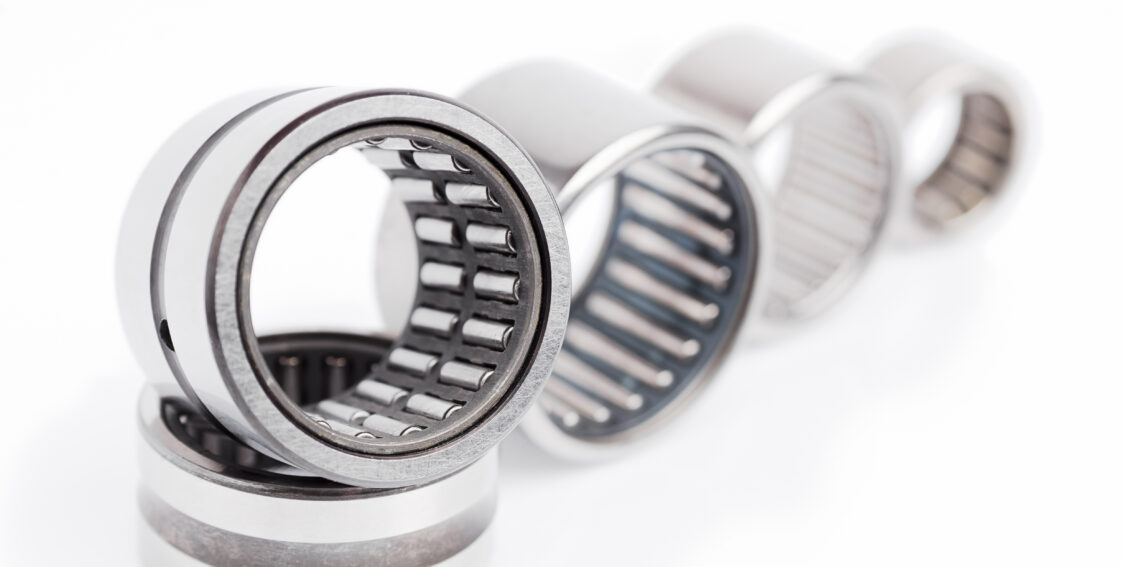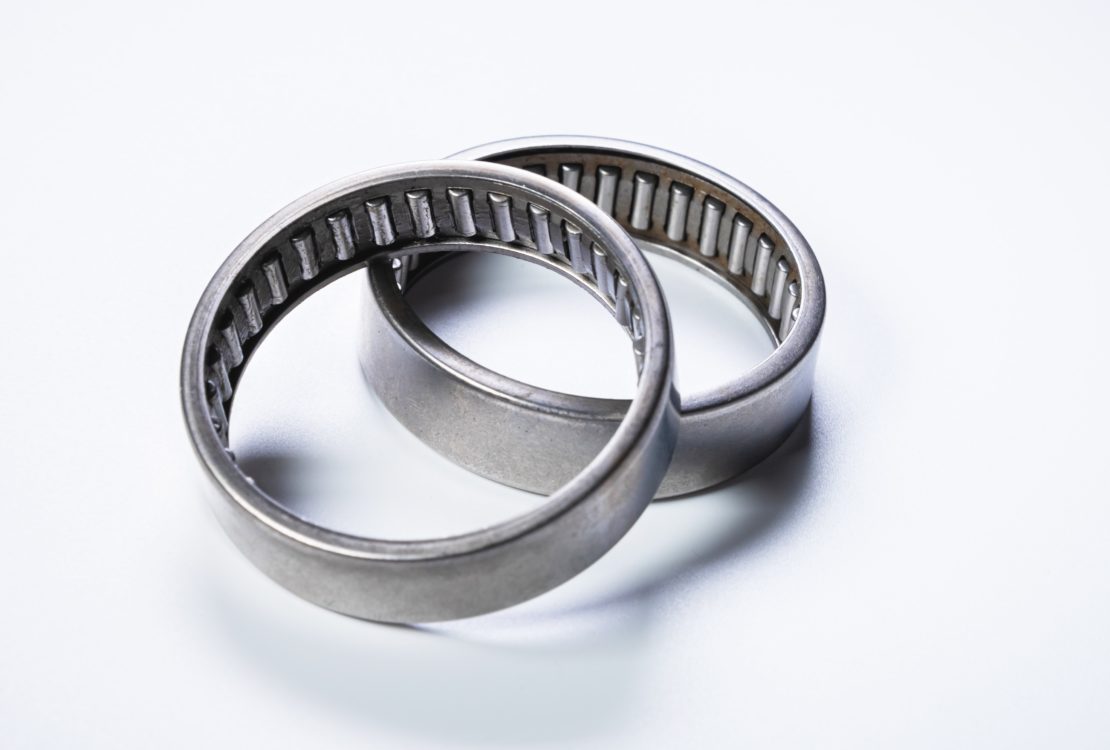
Guide to Selecting Custom Needle Bearings
Needle bearings are small, lightweight components that are known for their durability, high-load bearing capacity, and ability to transfer motion between moving parts and surfaces. Additionally, these bearings have a low friction coefficient, which helps reduce premature wear on mating surfaces.
Because of their many advantages, needle bearings are often used within multiple commercial and industrial industries, including automotive, aerospace, construction, and agriculture; some of their primary industry uses include two-cycle engine applications, transmissions, suspensions, torque converters, aircraft landing gear, shock absorbers, and converters.
While standard needle bearings are acceptable for many applications, custom bearings may be required to meet performance or space requirements. Ultimately, understanding how and when to choose between standard and custom needle bearings comes down to defining your unique application.
What to Consider Before Ordering Needle Bearings

Regardless of your application, there are a few essential criteria to define first before you order needle bearings.
First, you’ll need to determine the operating environment for your needle bearings. This includes understanding the peak operating temperatures of your equipment, machinery, or application, the amount of lubrication the bearing will need, and the amount of weight, or load bearing capacity, the needle bearing will have to hold or withstand.
Next, rotational speed, application rigidity, the mating surfaces themselves, and the physical space these bearings will occupy all play a role in determining the bearing’s lifespan and operating conditions. Will your bearings need to be replaced from time to time, and if so, how and when should they be replaced? What type of lubrication is required, and what are the physical requirements for the bearing itself? Most importantly, what is the process for replacing your bearings, and are there any maintenance steps that must be followed?
To sum it up, you’ll need to consider the following factors:
- Rotational Speed
- Operating Environment
- Bearing Lifespan
- Bearing Dimensions
- Application Rigidity
- Maintenance
If you’re not sure what type of needle bearing you need, please read our Guide to Needle Bearings, which will help you better understand your options and the types of bearings available to you.
Standard Versus Custom Needle Bearings
Once you’ve defined your criteria, you may still wonder whether or not a standard or custom needle bearing is the right fit for your application.
Standard
Standard stock needle bearings have a role to play in multiple situations; they have been tested, trialed, and run within various industrial and commercial applications. They also have a proven performance record and are often the designated aftermarket solution of equipment manufacturers. However, that doesn’t mean that your specific application needs a standard needle bearing. After all, these “standard” bearings were once custom bearings themselves.
Don’t make the all-too-common mistake of trying to force a standard bearing into your application. It could lead to premature wear and tear of the bearing and surrounding surfaces. This increases operating costs and could lead to a catastrophic failure of the bearing and surrounding assembly.
Custom
Custom needle bearings are specifically designed for your unique application. They won’t overperform or underperform. They won’t lead to premature failure or need excessive maintenance, repair, and replacement. They’re designed with your unique application and needs in mind.
Click here to learn more about what to consider when designing a custom needle bearing.
Benefits of Choosing the Right Bearing
It’s all about having the correct bearing for the right application. You want your equipment or machinery to perform its best. Choosing the right bearing will increase your equipment or machinery’s performance and minimize operating and maintenance costs.
Order Custom Needle Bearings from Universal Bearings
Do you need help selecting or designing a needle bearing? Turn to our team at Universal Bearings. Founded in 1959, we’re an ISO-certified needle bearing manufacturer and one of the only independent loose needle roller manufacturers in the world. No matter what we’re making, we always take a customer-centric and problem-solving approach. Some of our capabilities include custom designing and engineering, bearing analysis, heat treating, and testing. Please contact us today to learn more about how we can help you, or to request a quote.



